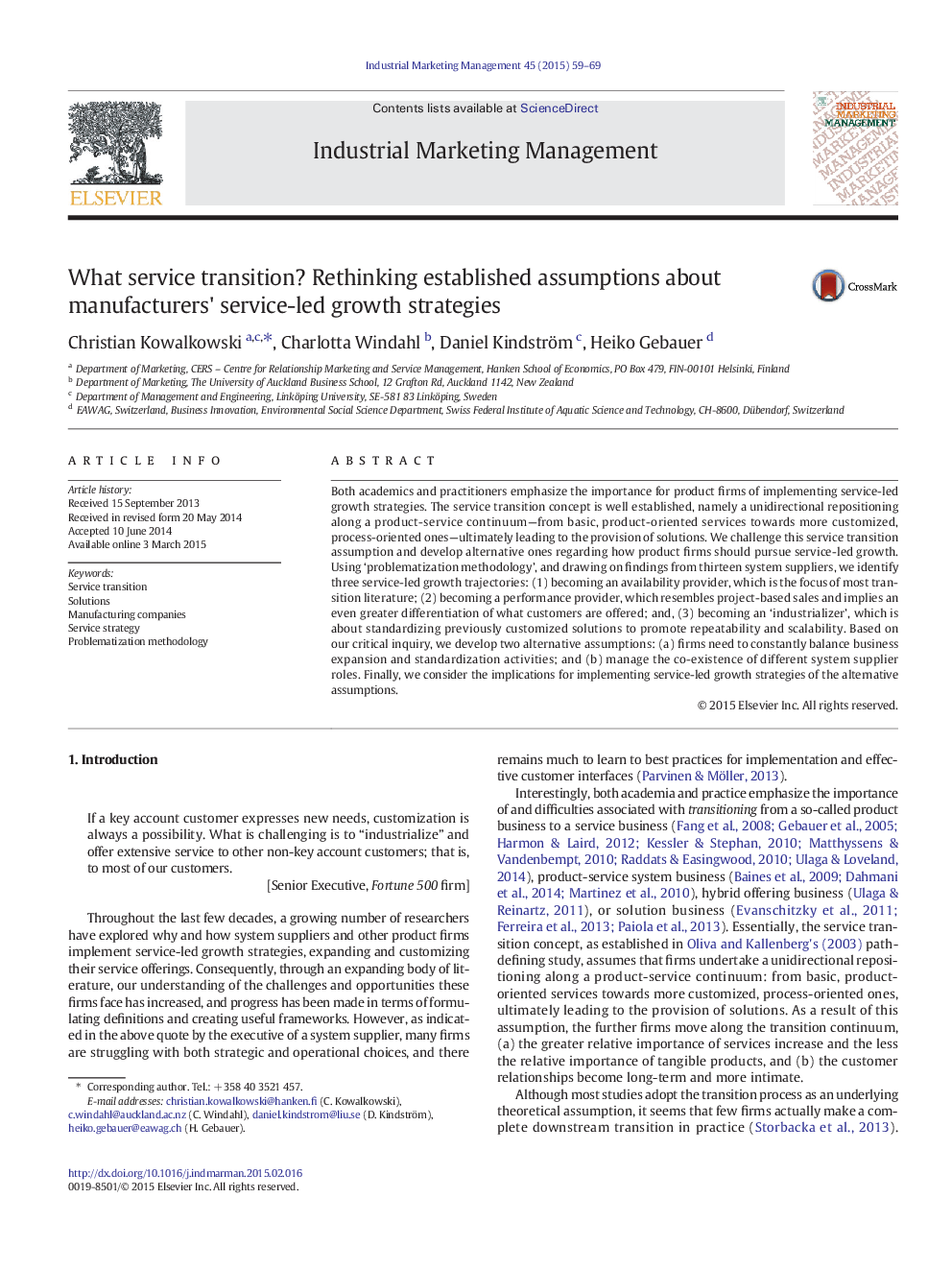ترجمه فارسی عنوان مقاله
چه سرویس انتقالی؟ تجدید نظر در مورد مفروضات ایجاد استراتژی های رشد سرویس رهبری تولید کنندگان
عنوان انگلیسی
What service transition? Rethinking established assumptions about manufacturers' service-led growth strategies
| کد مقاله | سال انتشار | تعداد صفحات مقاله انگلیسی |
|---|---|---|
| 41144 | 2015 | 11 صفحه PDF |
منبع

Publisher : Elsevier - Science Direct (الزویر - ساینس دایرکت)
Journal : Industrial Marketing Management, Volume 45, February 2015, Pages 59–69
ترجمه کلمات کلیدی
انتقال سرویس - راه حل - شرکت های تولید - استراتژی خدمات - روش مسئله دار ساختن
کلمات کلیدی انگلیسی
Service transition; Solutions; Manufacturing companies; Service strategy; Problematization methodology

